“When your head says one thing and your whole life says another, your head always loses.”
|
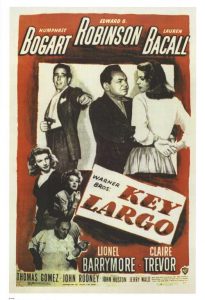
Synopsis:
On the eve of a hurricane, an ex-major (Humphrey Bogart) travels to a hotel in the Florida Keys to visit the widow (Lauren Bacall) and father (Lionel Barrymore) of a deceased army friend. He is soon embroiled in a stand-off with the hotel’s only guests: gangster Johnny Rocco (Edward G. Robinson), Rocco’s assistants (Harry Lewis, Thomas Gomez, William Haade, and Dan Seymour), and Rocco’s alcoholic moll (Claire Trevor).
|
|
Genres, Themes, Actors, and Directors:
- Claire Trevor Films
- Edward G. Robinson Films
- Gangsters
- Hostages
- Humphrey Bogart Films
- John Huston Films
- Lauren Bacall Films
- Lionel Barrymore Films
- Play Adaptation
Review:
Directed by John Huston and based on a play by Maxwell Anderson, this tension-filled hostage flick featured the fourth on-screen pairing of real-life couple Lauren Bacall and Humphrey Bogart — after To Have and Have Not (1944), The Big Sleep (1946), and Dark Passage (1947) — and afforded Robinson an opportunity to reprise his “gangster persona” as a fictional mash-up of Al Capone and Charles ‘Lucky’ Luciano. The screenplay (by Huston and Richard Brooks) makes excellent use of a claustrophobic “old dark house” setting, as the characters are bound together through both an impending hurricane and the threats of a ruthless, psychopathic gangster; meanwhile, surviving veteran Bogart is able to prove his masculinity and integrity to Bacall, others, and himself. Excellent performances, atmospheric cinematography, and a taut script make this a must-see classic by a master director.
Redeeming Qualities and Moments:
- Fine performances by the entire cast
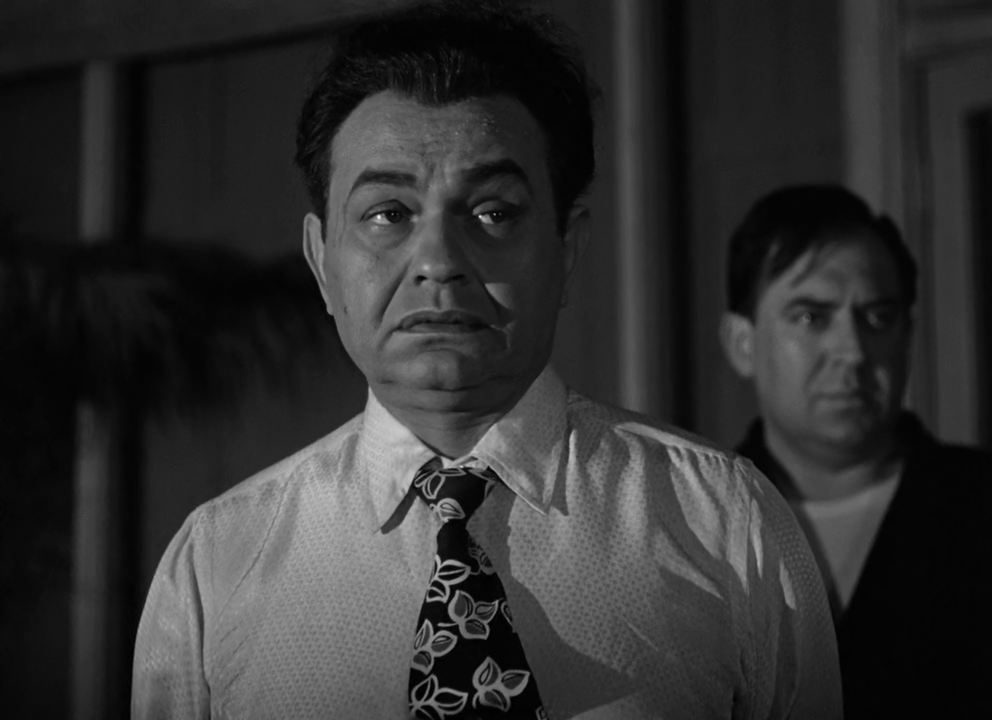
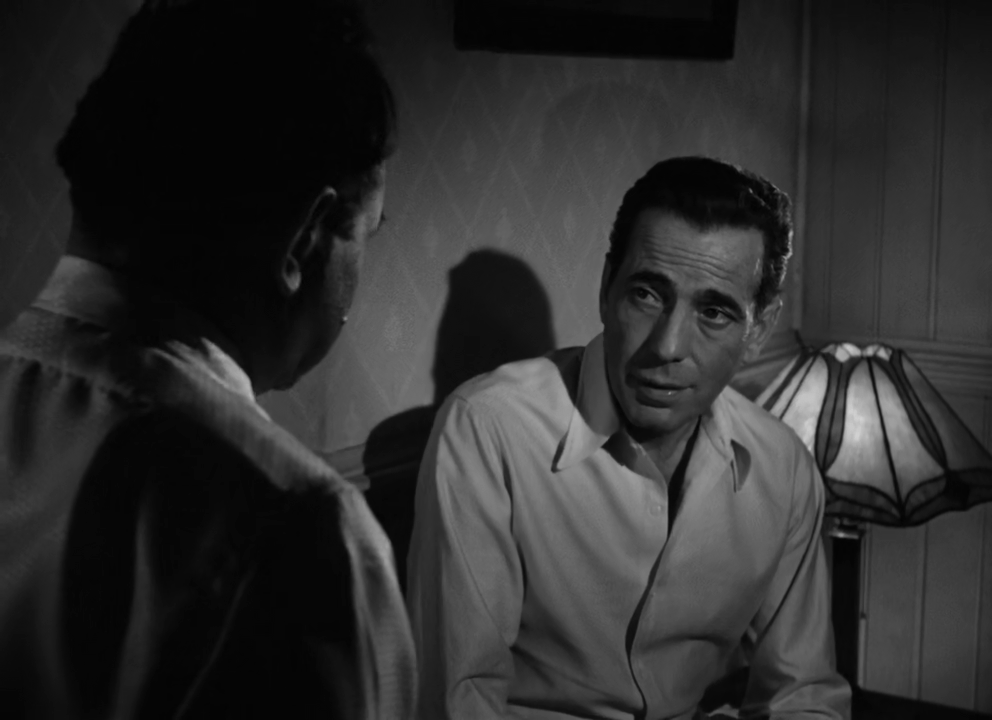
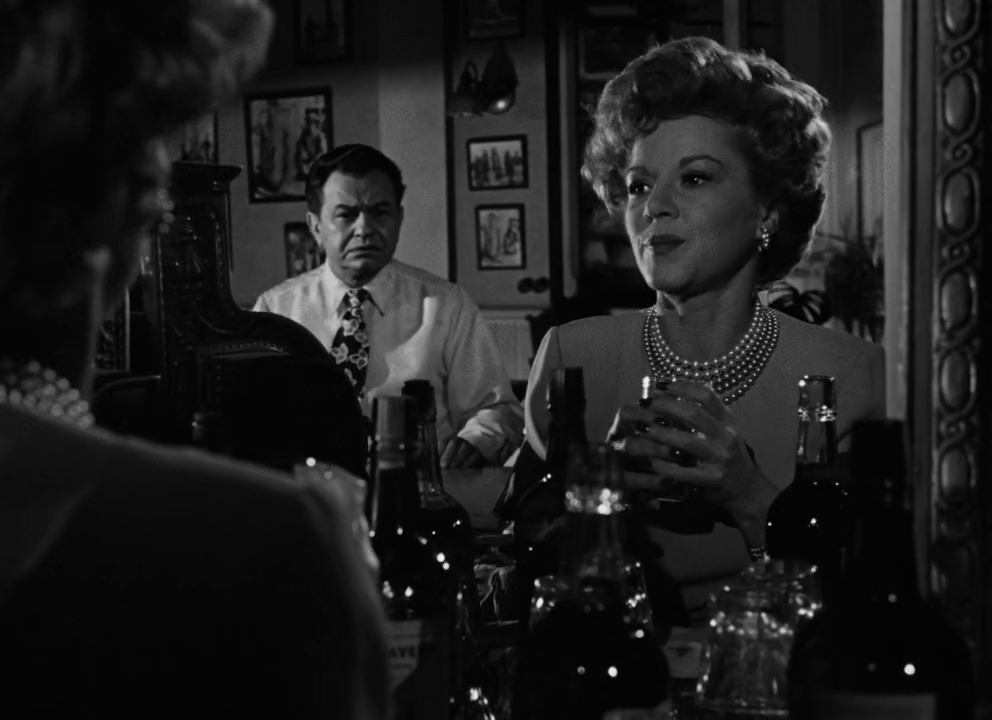
- Karl Freund’s cinematography

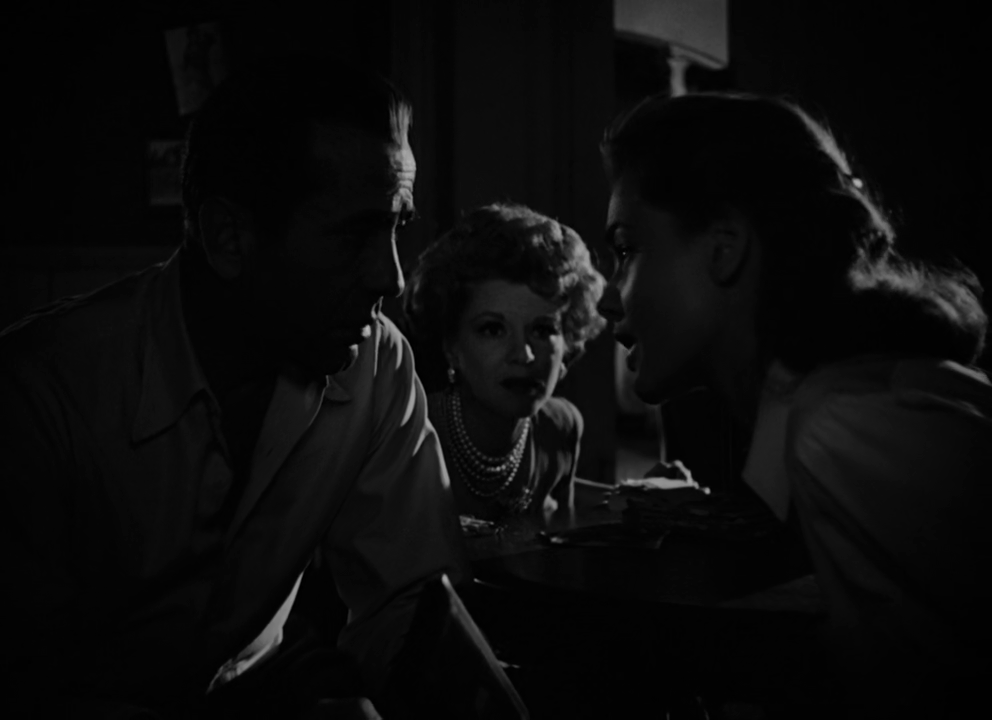
- An exciting, tension-filled script

Must See?
Yes, as a genuine classic.
Categories
- Genuine Classic
- Important Director
Links:
|
2 thoughts on “Key Largo (1948)”
A no-brainer must – one that holds up quite well on repeat viewings. I watch it every once in awhile and it always confirms (for me, anyway) why Huston is my favorite director.
Reportedly, Huston did not like Anderson’s blank-verse play (which had only modest success on Broadway at a little over 100 performances). But his finished product indicates that he had considerable business acumen: you take something on the ordinary side and turn it into something extraordinary to prove yourself. ~which he (and Brooks did); the film was a big hit.
The script is so strong – and so complex, in fact, that it inspired everyone in the cast to bring out the best in themselves. (The story goes that Brooks and Huston had recently worked together on the script for Siodmak’s ‘The Killers’ but did not get screen credit because of ‘contract restraints’.)
This is my favorite of the Bogart-Bacall pairings – they are both called on to deliver a depth and subtlety unlike what they show in their other films.
It’s great seeing Edward G. work with Huston; he’s hardly ever off-the-mark but here he has particular shading. I love how he’s terrified during the hurricane when most of the others are more resigned to the circumstance. (“You don’t like it, do you, Rocco, the storm? Show it your gun, why don’t you? If it doesn’t stop, shoot it.”) Huston also does something particularly shocking for a ’40s flick: at one point (at two points, really) Robinson whispers into Bacall’s ear: there’s no way he’s whispering about anything other than what he considers his sexual prowess. The first, somewhat-lengthy whisper is particularly full of sexual intent.
I’m certainly glad Trevor won an Oscar for one of her performances – she’s often so solid in her work. I esp. like her here early on, when we’re given more insight into her character. (“You see, I play the long-shots.”; her Gaye Dawn takes chances on things and people she identifies with.)
I also like the fact that ‘the love angle’ is subdued in this film. When we first see Bacall, she is clearly very much still in love with the memory of her husband. (Barrymore continues equally to hold his son dear.) Her attraction to Bogart’s Frank is slow and even very much challenged early on (when she suddenly sees him as a coward and the polar opposite of her dead husband). Even though her attraction grows again later, it’s not done in typical Hollywood fashion; she merely learns to like him and wants to know more about him – ‘falling in love’ is kept at bay.
DP Freund’s work is of particular note here: not only because of the impressive hurricane sequences but also because the film is an adaptation of a play – most of the action is inside the hotel and Freund maximizes fluidity so that we never feel we’re boxed-in, even though we simultaneously feel the effect of the pressure-cooker situation.
‘Key Largo’ has aged very well and it remains relevant to modern audiences. It’s quite a verbal piece though that’s cleverly mixed with sufficient action to keep everything from feeling too dialogue-heavy.
It’s simply a great film. I can’t say enough good things about it, really.
⭐️⭐️⭐️⭐️⭐️
I love the closeted nature of the location for this and it has a knockout script and performances; a must see.